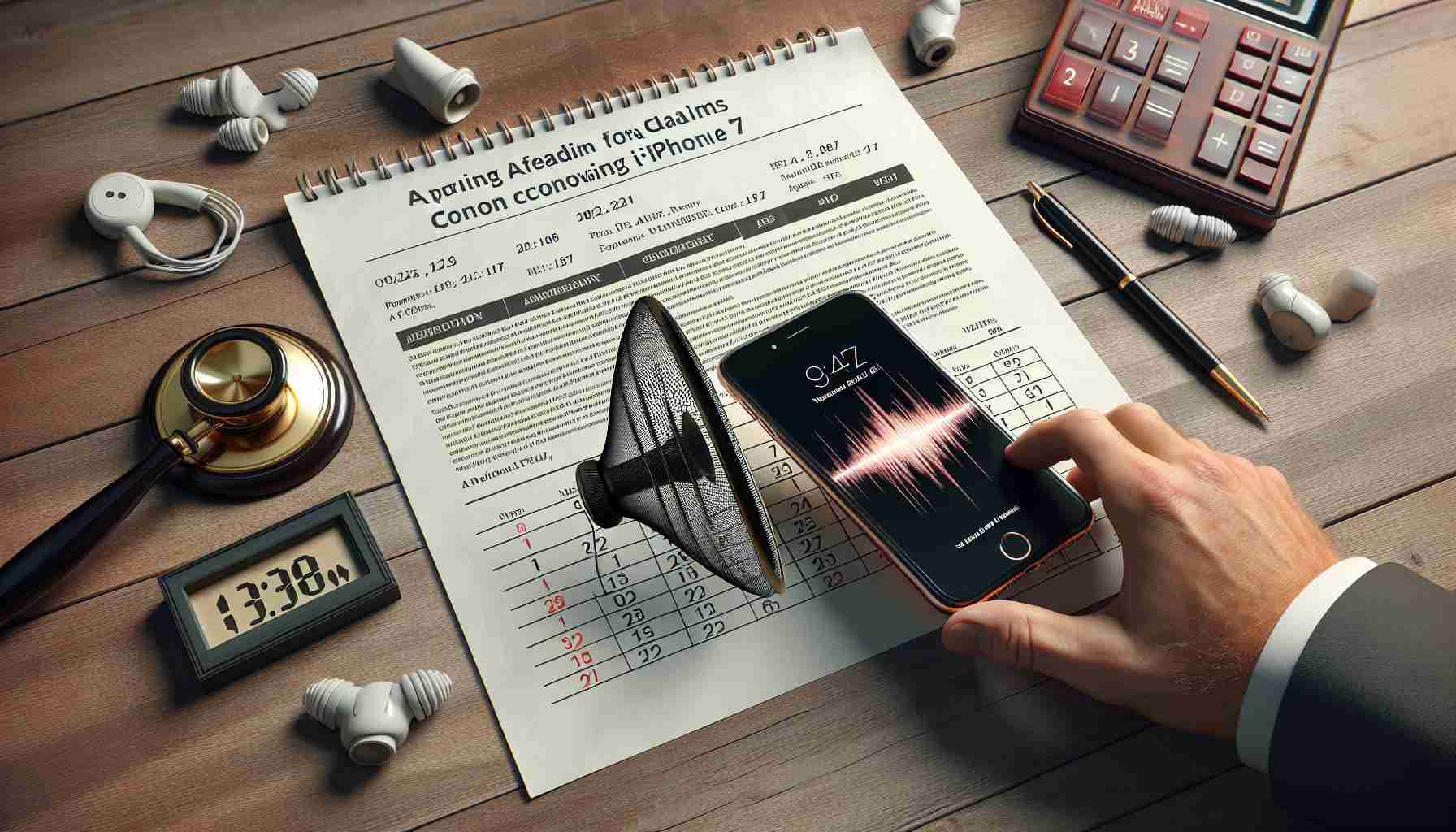Apple iPhone 7 and iPhone 7 Plus owners who have experienced specific audio problems with their devices have limited time to claim their share from a $35 million class action settlement Apple has agreed to pay. Eligible users must file their claims by the forthcoming June 3 deadline, following an agreement from a lawsuit settled by Apple last year.
The lawsuit revolved around a defect commonly dubbed as “Loop Disease,” which impeded audio functionality and affected services like FaceTime. Apple was confronted with several lawsuits in the US over these audio issues, which were traced back to a malfunctioning audio IC chip present in the iPhone 7 models.
Apple has consistently rejected any allegations of wrongdoing but opted for a settlement to close the matter last year. The tech giant has communicated to potential claimants about the settlement, urging them to come forward if they were financially impacted by the defect.
Claim eligibility follows strict guidelines set in the lawsuit, reportedly identifying two distinct categories of users who can obtain compensation. Those who shouldered the repair costs for the aforementioned issues out of pocket can expect reimbursements ranging from $50 to a maximum of $349. The exact amount will be contingent on the total number of claimants. Alternatively, individuals who reported their audio troubles to Apple but did not pay for repairs can be compensated up to $125.
The claim process is particularly targeted at those U.S. residents who have owned or currently own either of the affected iPhone models from September 16, 2016, through January 3, 2023, and have recorded complaints of various associated audio issues in Apple’s records.
With the final approval hearing scheduled for July 18, successful claimants are projected to begin receiving their respective payments following the hearing. For more information on eligibility and the claim process, affected users are encouraged to visit the settlement website.
Important Questions and Answers:
Q: What is the deadline to file a claim for the iPhone 7 audio issue class action settlement?
A: The deadline to file a claim is June 3.
Q: What audio issues are covered under the settlement?
A: The settlement covers a defect known as “Loop Disease,” which affected audio functionality and services like FaceTime on iPhone 7 and iPhone 7 Plus models.
Q: How much can claimants receive from the settlement?
A: Claimants who paid for repairs can expect reimbursements from $50 to $349, while those who reported issues to Apple but did not pay for repairs can receive up to $125, contingent on the number of claimants.
Q: Who is eligible to file a claim?
A: U.S. residents who have owned or own an affected iPhone model from September 16, 2016, through January 3, 2023, and have documented complaints of the audio issues in Apple’s records.
Key Challenges or Controversies:
– Apple’s rejection of any wrongdoing while agreeing to a settlement has raised questions about the company’s responsibility and the prevalence of “Loop Disease.”
– Determining the amount each claimant will receive can be challenging, as it depends on the total number of claimants, which may not be known until the claim deadline has passed.
Advantages and Disadvantages:
Advantages:
– Affected consumers have the opportunity to be compensated for the cost of repairs or for their reported inconvenience.
– The settlement brings attention to consumer rights and corporate accountability in the tech industry.
Disadvantages:
– Limited compensation might not fully cover the inconvenience and costs incurred by affected users, especially if the repair costs exceeded the maximum reimbursement.
– The settlement does not admit wrongdoing, leaving some claimants dissatisfied with the acknowledgment of the issue.
For further information regarding the settlement claims, affected iPhone 7 and iPhone 7 Plus owners should visit the Apple official settlement website. Please ensure that you visit the official website directly to avoid any scams or misinformation.
